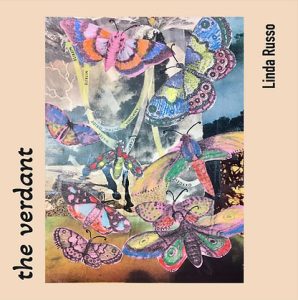Cimarron Review – Spring 2010
Issue 171
Spring 2010
Quarterly
Sima Rabinowitz
This issue is dedicated to Ai (1947-2010) as signaled by one page with only her name and dates centered in large type. I was impressed by this eloquent and elegant tribute to a poet whose powerful work is more richly and appropriately honored by this understated memorial than any long-winded remarks would be.
This issue is dedicated to Ai (1947-2010) as signaled by one page with only her name and dates centered in large type. I was impressed by this eloquent and elegant tribute to a poet whose powerful work is more richly and appropriately honored by this understated memorial than any long-winded remarks would be.
The issue features the work of two-dozen poets and four prose writers (two stories, two essays). Dorianne Laux, perhaps the most recognizable name in the TOC, is representative of much of the issue’s poetry. Here is the opening of “Lost in Costco” (isn’t that a fantastic rhyme?!):
My mother wandered the aisles in the city
of canned goods and 30 lb. sacks
of dog food, mountains of sweat pants
and cheap jeans, open bins of discounted CDs.
She rested for a moment on the edge
of a bed in the furniture section,
trying to remember if it was time to sleep,
then headed off to garden supplies
where she stared at the glazed pots, missing
her roses, the ones she planted
outside the house she had to sell with the tree
she wanted to be buried under…
I am always impressed by the way Laux creates context (“trying to remember if it was time to sleep”) out of surface detail. It takes enormous skill and control, it seems to me, to provide that much back-story in one short line, not a word of which is attention-grabbing on its own.
Poems that break with the issue’s proclivities (narrative poems), include Sean O’Brien’s “Sleep” (“Like youth, this language has forgotten you. // Lost on the tip of its tongue, you could wait // A long time to be missed.”); and Jason Rouch’s sonnet “Distance” (“Beyond the point of what can be undone – the world paved over and over, built upon, / carbon traces in every natural space / and particle of air we breathe…vacant / houses crowd the waterfront”).
Prose is less edgy and sharply shaped than much of the poetry, for the most part. Here is the opening of John Robinson’s story, “Dostoevsky in the Dining Room”:
Rhiordan met Ramsey every Wednesday around 9:00 A.M., and they ate and gabbed until the first luncheoners nudged into the dining room, pushing chairs to and fro, hunching over menus. He had met Ramsey at a party only a few months before his colonoscopy, and the both – being in their fifties – decided to undergo the operation at approximately the same time, bolstering each other for the grim event.
And here is the opening of an essay by Ryan Dennis, “Tempting the Language of Farming”:
I milked with my father every morning in the dark. We herded cows into the parlor eight at a time and dipped their teats. When we were at the end of the row we turned around, wiped it off, and put the milkers on. We smelled like iodine and cow shit, and while we waited for the cows to milk out we passed the time talking.
What I loved about the essay is that it turns out not to be about milking cows, or plowing fields, or barn cats, or radios, or anything of the subjects it treats, but about language (as the title announces, but for some reason I didn’t believe it). It’s about the author’s failure as a farmer and success as a keeper of its vocabulary (“It’s the language that won’t let me go.”) told simply, humbly, and authentically.
It’s that balance of tones (arrogant/humble; edgy/earnest; street-wise/farm tested) that keeps Cimarron Review engaging and fresh after 171 issues.
[cimarronreview.com/]




